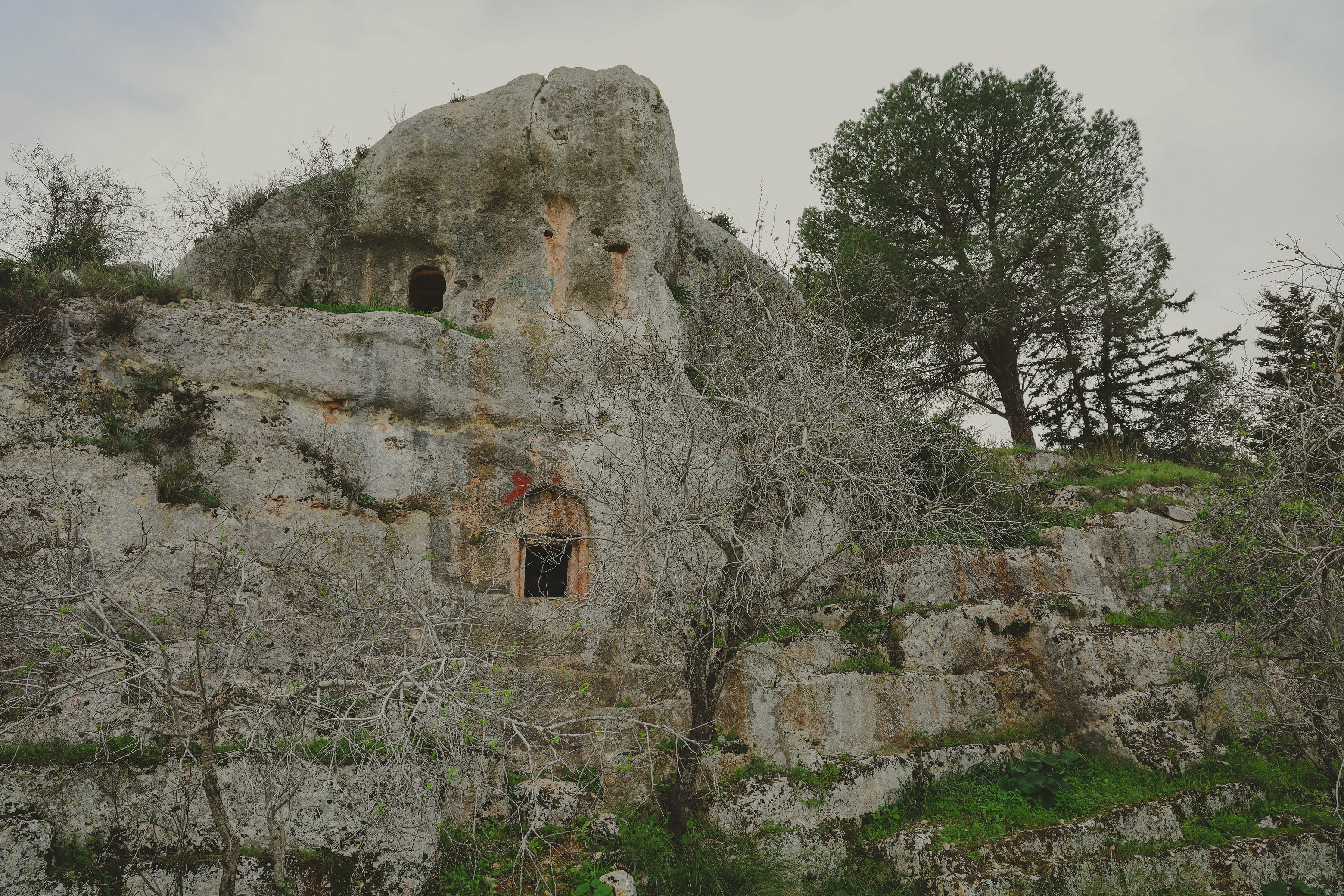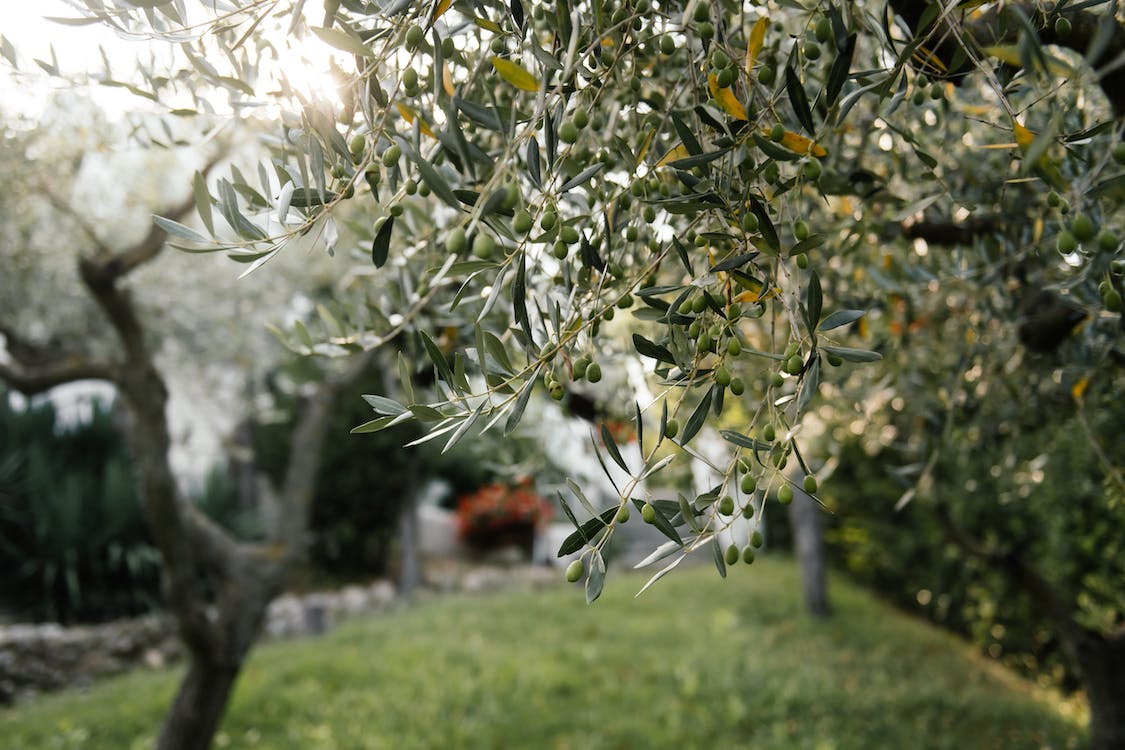Our oil press partner, managed by the Barghouti family is nestled in the heart of Aboud, surrounded by hundreds of ancient olive trees, the oil press is a true representation of the village's rich cultural heritage.
The Barghouti family has remained steadfast in their commitment to producing the best olive oil in Palestine. Today, their oil press continues to thrive, serving as a symbol of the resilience and determination of the Palestinian people.
For those who have the opportunity to visit Aboud, they will be struck by the timeless beauty of the village and its people. The sound of the oil press echoing through the streets, the scent of fresh olives being pressed into oil, and the warmth of the Barghouti family will leave a lasting impression. It is truly a place where the art of olive oil production is celebrated and the rich cultural heritage of Palestine is preserved.
The history of Aboud is one of resilience and strength in the face of adversity. Since the Six-Day War in 1967, Aboud has been under Israeli occupation. Despite this, the people of Aboud have held steadfast to their land and their traditions. Unfortunately, the occupation has brought with it many challenges, including land confiscation and settlement construction. The Israeli settlements of Beit Aryeh-Ofarim have been built on land that was once part of Aboud, and in 2018, the Israeli authorities announced their intention to seize even more land in order to build a road exclusively for Israeli settlers. Despite these challenges, the people of Aboud remain determined to hold onto their land and their way of life.
Amidst the hills of Aboud lies a sacred site, the Church of Saint Barbara. Its ancient walls, erected in the Byzantine period, hold within them a rich history of devotion and pilgrimage. For centuries, Palestinian Christians have made the journey to this holy sanctuary to pay homage to the revered Saint Barbara, the oldest and most sacred of Aboud's churches. Inside, grandiose catacombs with ornate carvings of wreaths, grape vines, and grape clusters reveal the artistic mastery of a bygone era. Despite its significance, the church was destroyed in 2002 by the Israeli army, a tragedy that devastated the community and robbed them of a cherished symbol of their heritage.
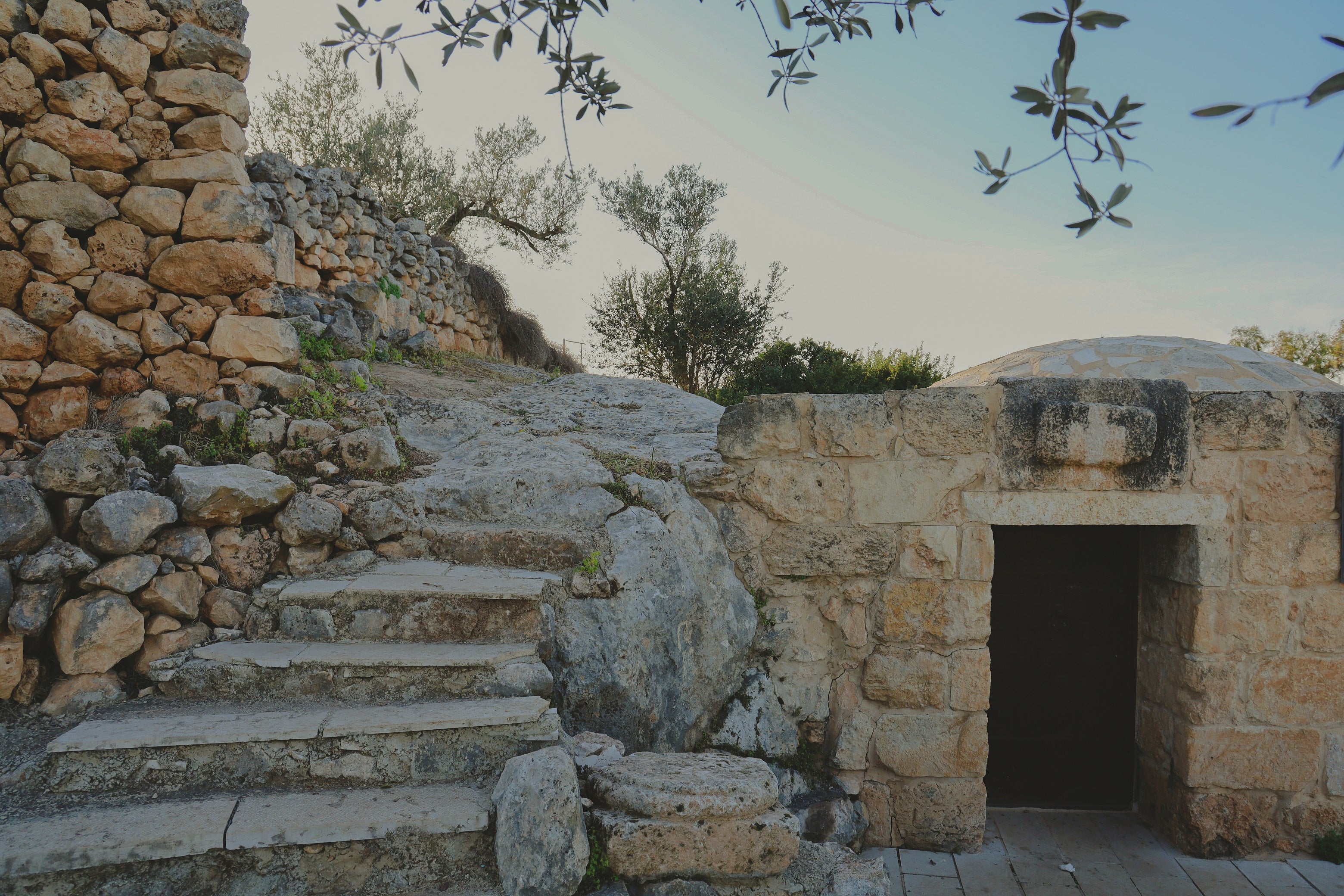
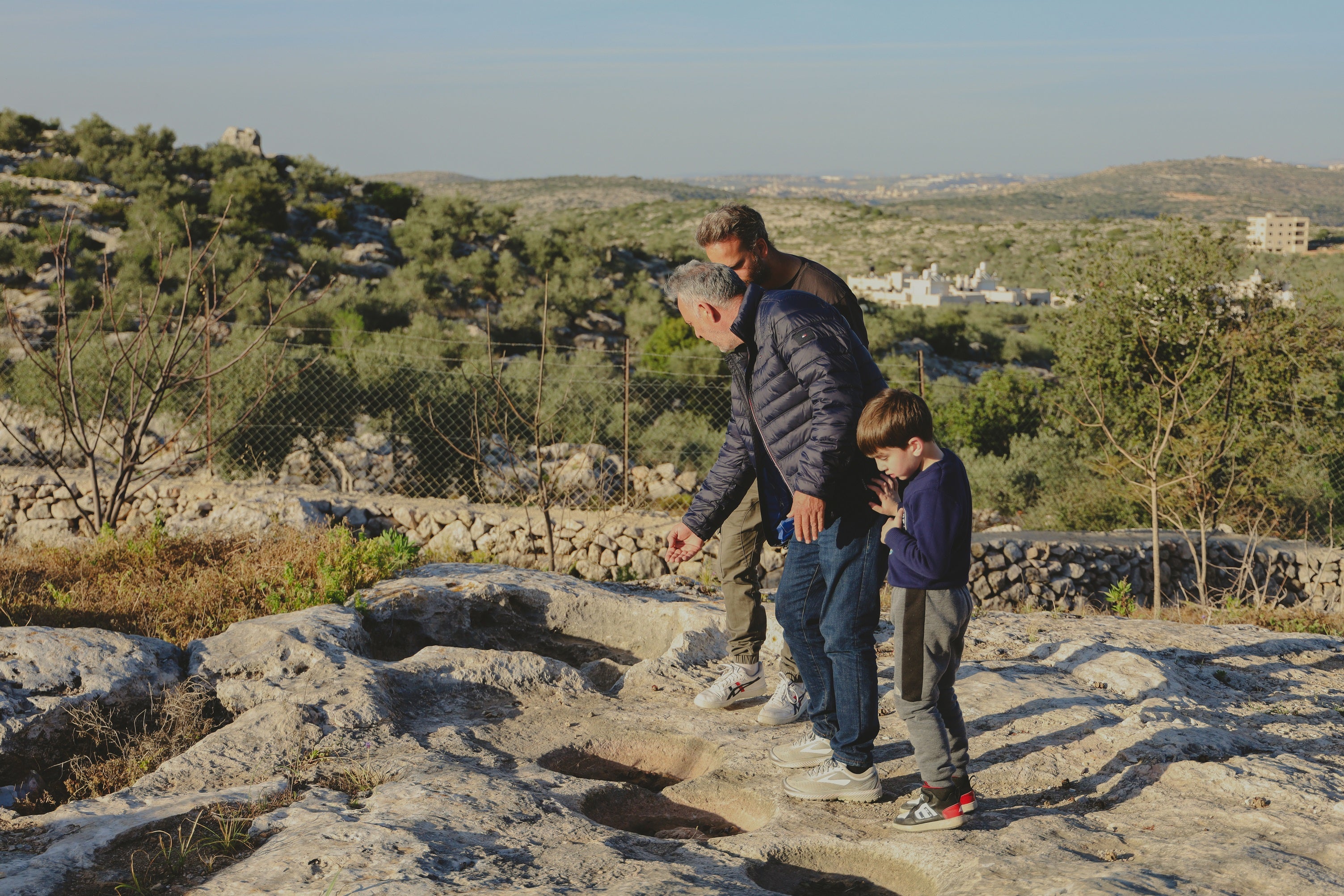
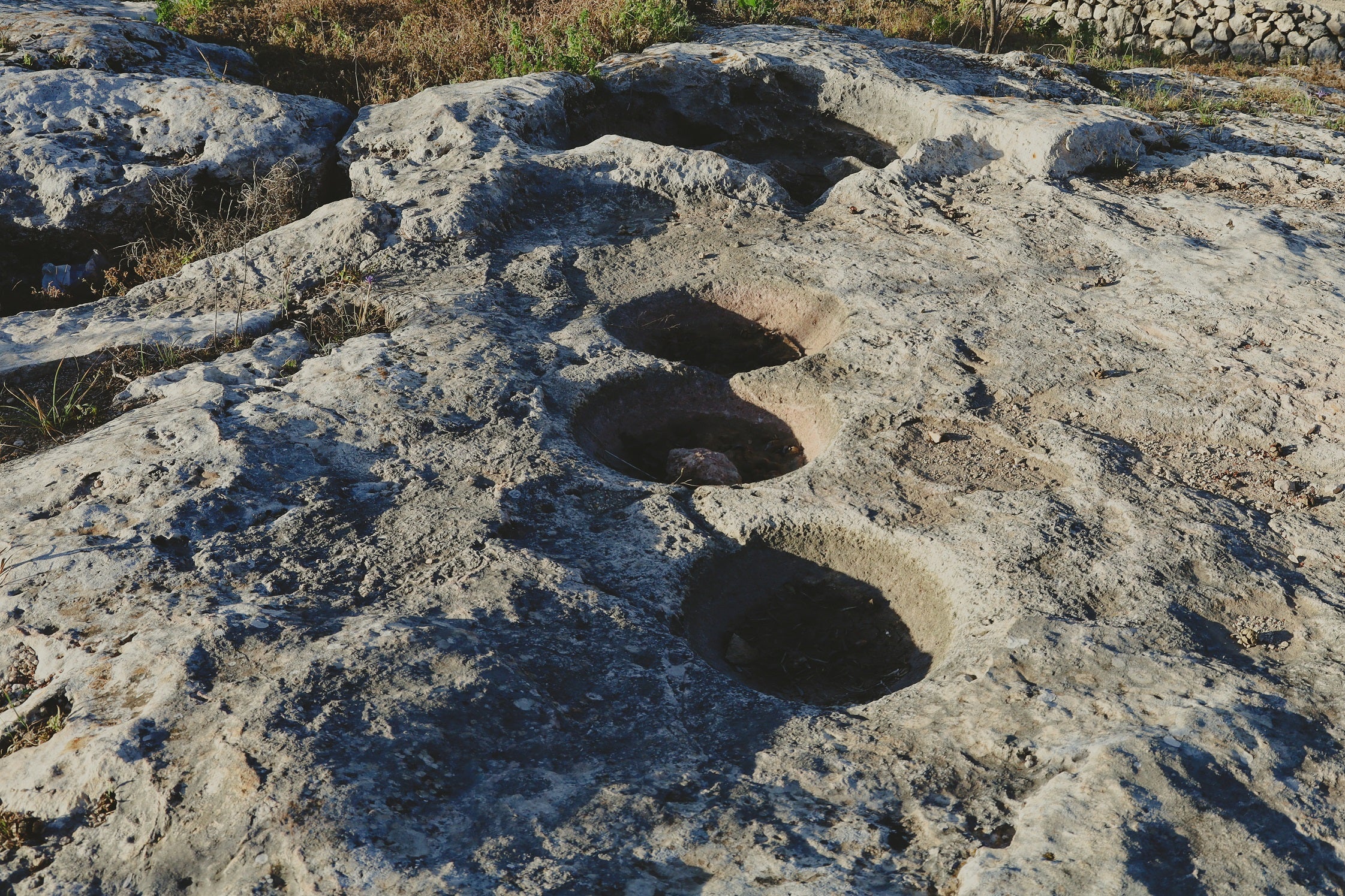
The 3,000-year-old oil press in Aboud stands as a testament to the rich history and culture of Palestine. Carved from stone and built by ancient hands, this press has been a cornerstone of the village's economy and way of life for generations. As you stand before it and run your hands over its smooth surfaces, you can feel the weight of the centuries that it has endured. It is a symbol of resilience and the enduring spirit of a people who have seen countless empires rise and fall, yet continue to persevere. This ancient press is a treasure of Aboud and a reminder of the timeless traditions that have shaped this land for thousands of years.
Aboud is an ancient village that has been inhabited since the Roman era, with evidence of settlements from the Iron Age II, Byzantine, Crusader/Ayyubid, Mamluk, and Ottoman periods. The village's St. Mary Church was built in the 5th to 6th century, and a Syriac inscription in the church dates back to 1058 during the Fatimid rule. During the Crusader period, Aboud was known as the Latin Casale Santa Maria, and the Crusaders made additions to the church. The village was sold to the Knights Hospitallers in 1167 and was used to supply white bread to the sick in the hospital of Jerusalem. In the 13th or 14th century, during Mamluk rule, the southern part of Aboud was founded, and two ornate mausoleums were built during this time.
